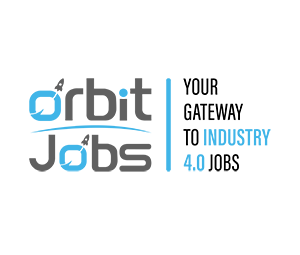Interview questions about your goals are a common part of the job interview process. Employers ask these questions to assess your ambition, motivation, and alignment with their organization. Providing well-thought-out and articulate answers can greatly enhance your chances of landing the job. In this guide, we will explore strategies and provide real data to help you answer these questions effectively.
Section 1: Understand the Purpose of Goal-Related Questions
Before diving into specific strategies, it’s important to grasp why interviewers ask about your goals. According to a survey by Glassdoor, 53% of employers say they are more likely to hire candidates who have clear career goals. These questions serve several purposes:
- Assessing Your Motivation: Interviewers want to gauge your enthusiasm for the position and the company. Passionate candidates are often more committed and productive.
- Evaluating Cultural Fit: Your goals should align with the company’s mission and values. Employers look for candidates who can seamlessly integrate into their organizational culture.
- Predicting Long-Term Potential: Employers want to identify candidates who are likely to stay with the company for the long haul. If your goals match the company’s growth trajectory, you become a valuable asset.
Section 2: Prepare Well-Defined Goals
To answer goal-related questions effectively, you must first define your own career goals. Here are some steps to help you establish clear, well-defined goals:
- Self-Assessment: Reflect on your skills, interests, values, and long-term aspirations. What do you want to achieve professionally?
- Short-Term vs. Long-Term: Distinguish between your short-term and long-term goals. Short-term goals should be achievable within a few years, while long-term goals encompass your career ambitions.
- Alignment with Company: Research the company’s mission, values, and future plans. Your goals should align with the organization’s objectives.
Section 3: Craft Your Answers
Now that you have clear goals in mind, it’s time to craft compelling answers to goal-related questions. Here’s a step-by-step approach:
- Be Specific: When discussing your goals, provide concrete examples and details. Vague answers like, “I want to be successful,” lack impact. Instead, say something like, “I aim to become a senior software engineer within the next three years.”
- Show Enthusiasm: Express genuine excitement about the position and the company. Explain why achieving your goals within this organization is particularly appealing.
- Highlight Relevant Skills: Emphasize the skills and experiences that make you well-suited to achieving your goals. Provide examples from your past that demonstrate your capability.
Section 4: Real Data on Goal-Related Questions
Let’s look at some real data to illustrate how candidates can effectively answer goal-related questions:
Example 1:
Interviewer: “Where do you see yourself in five years?”
Candidate: “In five years, I see myself as a marketing manager with expertise in digital marketing strategies. I aim to contribute to the growth of this company by leveraging my skills in SEO, content marketing, and data analysis. I’ve noticed that your company is expanding its digital presence, and I’m excited about the opportunity to be part of that journey.”
Example 2:
Interviewer: “What are your long-term career aspirations, and how do they align with our company’s mission?”
Candidate: “My long-term career aspiration is to make a meaningful impact on the healthcare industry by improving access to quality care. Your company’s mission of providing innovative healthcare solutions deeply resonates with me. I believe that my passion for healthcare combined with my skills in project management can contribute to achieving this mission.”
Section 5: Handling Changes in Goals
It’s important to note that goals can change over time. If your goals shift during your career, it’s perfectly acceptable. When addressing changing goals in an interview, be honest and explain the reasons behind the shift. Showcase how your new goals are still aligned with the company’s objectives.
Effectively answering interview questions about your goals is a crucial skill for job seekers. By understanding the purpose of these questions, defining your goals, crafting articulate responses, and using real data as examples, you can leave a lasting impression on interviewers. Your thoughtful and well-aligned answers will increase your chances of securing the job that matches your career aspirations.







